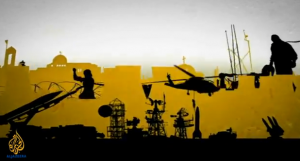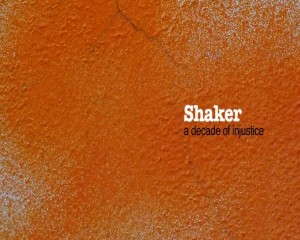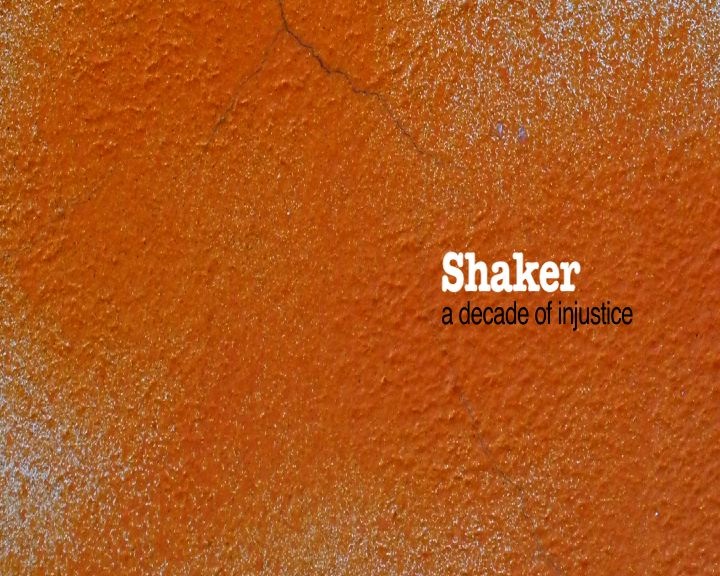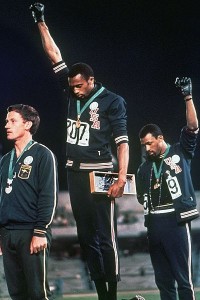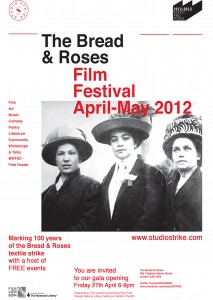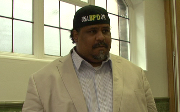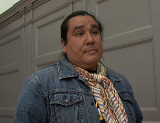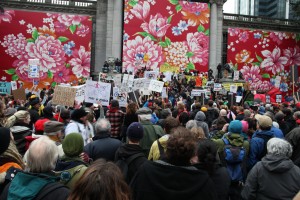
Spectacle has made this short film about Shaker Aamer to mark the 10th anniversary of his incarceration. Watch Spectacle’s new video on Shaker Aamer and please sign the petition @ www.freeshaker.com. Get him out of Guantanamo!
Ramzi Kassem, Professor of Law at City University of New York and lawyer, is one of Shaker Aamer’s US attorneys. These notes, recently unclassified, were made during his visit to Shaker on Shaker on January 27th 2012.
They record Shaker’s words.
“I am being mistreated because I refuse to comply in the face of injustice. Prison authorities keep telling me that I have to become ‘compliant.’ I reply that it is they who have to become compliant. It is a constant 24 hour struggle. They force me to fight every step of the way. I’m a free man. Don’t try to humiliate me.”
CONDITIONS IN CAMP FIVE ECHO
From July 15th to December 3rd 2011, Shaker was held in total solitary confinement in Camp 5 Echo, – a punishment block for prisoners who are regarded as not compliant or who have too much influence over their fellow prisoners. The cells are half the size of the cells elsewhere, allowing for very little room to kneel for prayers. The cells contain only a steel bed, a squat toilet and two taps. Shaker was confined to his cell for 22 hours day and night with only 2 hours in the recreation yard from 6am to 8am.
“… the squat toilet is difficult to use, there are foul odors, bright lights shine on detainees and air conditioners keep it extremely cold. It is decrepit, filthy and disgusting.”
SLEEP DEPRIVATION
Shaker described the sleep deprivation methods used by the guards, including regularly shining a flashlight in his face and liberally spreading detergent around which filled his cell with a strong smell “so that he couldn’t breathe…so many ways Lucifer can think of… speaking loudly though the night with all kinds of noises- cleaning ,moving things, shaking the locks of the cells, turning the lights on and off…..sleeping in the light..no darkness to sleep..”
DENIAL OF BASIC NEEDS
Another method of punishment was to remove basic comfort items such as combs, toothbrush, and nail clippers. On January 27th, Shaker said, “Today is the first day I take a shower since 3/12/2011 and shave because I am coming to see you.”
Previously he has had to “shower from the toilet, I take water and shower from the same place I take shit”.
Even the Styrofoam plastic cups were banned.
“I have to drink my hot coffee and tea from water bottles.”
FURTHER ABUSE IN CAMP FIVE
On December 3rd, Shaker was moved out of Camp 5 Echo back to Camp 5. However, the punishment continued. Shaker states that he was prohibited from having toothpaste and toilet paper in case he used them to cover the camera in his cell, which monitored his every move.
DAILY FORCED CELL EXTRACTIONS
Every day, from Dec 3rd to his lawyer’s visit on January 27th, Shaker states that he was subjected to “Forced Cell Extractions.” This is a form of cruel treatment used to confuse and disorientate prisoners, often called “frequent flying” and carried out with violence.
“I got beaten up on my knee and my finger is almost broken. Swelled for a few days… they refused to give me any treatment not even a knee brace. Bruises and swelling all over my body. Squeezing my neck so bad I could not breathe. Try to break my hand and fingers. Pressure on my back, stomach and chest, so much pressure. Tight, the plastic cuffs, so tight the blood circulation stop.”
SHAKER IS DENIED MEDICAL CARE
Clive Stafford Smith, Director of the legal charity Reprieve, listed Shaker’s many serious medical problems in his letter to Foreign Secretary William Hague following his visit to Shaker on November 17th 2011. He stated that Shaker was “gradually dying in Guantanamo.” Shaker states that he had received, “No privacy, no medical care whatsoever” in Camp Five Echo.
Shaker’s account to Ramzi Kassem in January 27th ended with this shocking account of his fears for his life.
“THEY WANT ME HARMED”
“Since 3/12/2011, when they moved me out of 5 Echo, I am going to rec. alone and I haven’t seen my doctor for long time and I refuse to take any meds. from the medical staff. I am very worried about my health and my life in this place. I feel so vulnerable and any time they can do anything to me no one knows.”
I have been on hunger strike since 15/7/2011 and my weight went from 208 pounds to 148 pounds but they did not give me the tube to feed me so I start to eat fruit and salad sometimes so I don’t harm my body. I have no doubt they want me to be harmed.
One thing I know for sure if something bad happen to me it happens with the hand of the American. I will never harm myself. I have a wife and kids I want to go back to. Anything happen to me, they done it. There is so much to say about the evil they do in this place, specially the small things that no one pay attention to it, but one thing you just need to know:
” They control the air we breathe. Control the light, control the noise, control the food, control the water. The control everything and they use it against me any time they want. All that you need to know about this place you just need to read 1984 by George Orwell. I swear to my only Lord there is no human being in this place. Guards with no feeling, they do what they are told, regardless of anything.”
URGENT APPEAL FOR SHAKER AAMER’S RETURN
It is unlikely that conditions have improved for Shaker Aamer since this report of January 27th. Every day he continues to be abused and tortured. Shaker is in fear for his life. His only wish is to be allowed to return to his wife and family in the UK before “anything happens to him.”
Shaker Aamer has been imprisoned in Guantanamo in the harshest of conditions for over ten years, despite having been cleared for release since 2007.
Please do all you can to save Shaker Aamer, his life is in danger.
Time is running out for Shaker. Please join our campaign to demand his return to end his appalling abuse and torture.
Joy Hurcombe
Chair the Save Shaker Aamer Campaign
29.4.2012
Order Spectacle’s DVD Outside The Law: Stories from Guantánamo
Click Guantánamo for more blogs
Or visit our Guantánamo project pages for more information and videos.
Spectacle homepage
Befriend Spectacle.Docs on Facebook
Follow SpectacleMedia on Twitter

